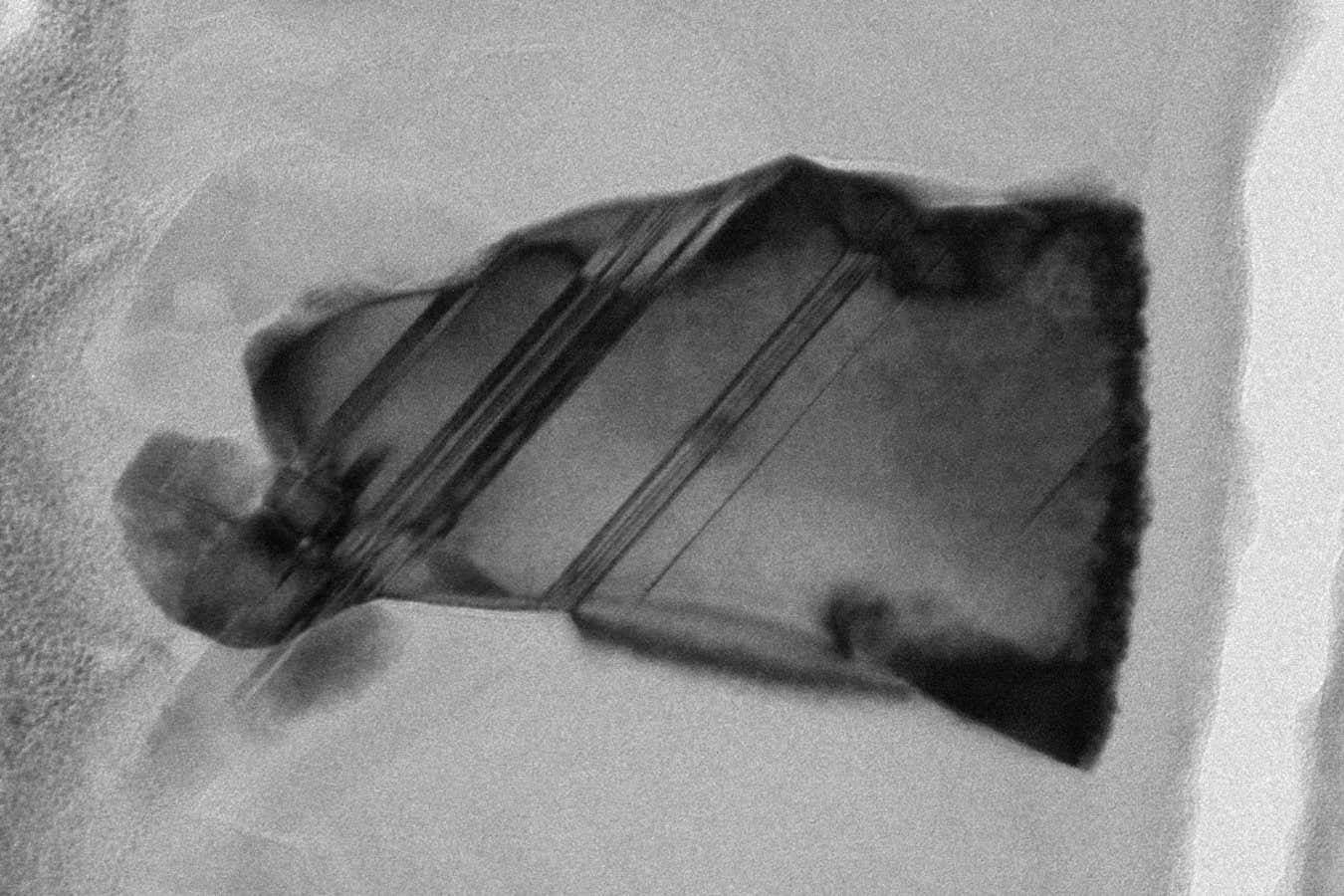
This carbon nitride is almost as hard as diamond
Dominique Laniel et al.
An elusive material that scientists have wanted to make for decades has finally been synthesised under tremendous heat and pressure – and it is nearly as hard as diamond. It could potentially be used in cutting tools, sensors and even as an explosive.
In 1989, researchers theorised that a material made from carbon and nitrogen would be less compressible and more resistant to shearing than even diamond, the hardest known material. But efforts to make it failed.
Now, Dominique Laniel at the University of Edinburgh, UK, and his colleagues have created tiny samples of the material, a type of carbon nitride. They did this by compressing carbon and nitrogen between diamond points at 700,000 times atmospheric pressure and heating to 3000°C with lasers.
Diamond has a hardness of about 90 gigapascals and the previous second-hardest known material, cubic boron nitride, scores between 50 and 55 GPa. Laniel says that the new material scores between 78 and 86 GPa, depending on which of three crystal structures form.
The estimate from the 1989 work that the substance’s hardness would exceed that of diamond has now been overturned, and it is now thought that no material can surpass that.
“There’s a huge gap between diamond and the [previous] second best. So we’re starting to fill, to close, that gap,” says Laniel. He says the new material is being called carbon nitride even though there are existing materials made of those two elements that are very different, and that a more chemically accurate name would be “a bit of a mouthful” so the researchers are open to suggestions.
The samples are just 5 micrometres across and 3 micrometres deep, and scaling-up production could be difficult. Using larger diamonds to compress the samples would theoretically allow bigger bits of material to be made, but even stronger compression would be needed to form them.
This would make the carbon nitride much more expensive than diamond to buy. But Laniel says the material has benefits that diamond doesn’t, such as generating an electrical signal under pressure, which could make it useful in sensors. Its high energy density could also make it a powerful explosive that is less toxic for the environment than current alternatives, says Laniel.
Topics:

Felecia Phillips Ollie DD (h.c.) is the inspiring leader and founder of The Equality Network LLC (TEN). With a background in coaching, travel, and a career in news, Felecia brings a unique perspective to promoting diversity and inclusion. Holding a Bachelor’s Degree in English/Communications, she is passionate about creating a more inclusive future. From graduating from Mississippi Valley State University to leading initiatives like the Washington State Department of Ecology’s Equal Employment Opportunity Program, Felecia is dedicated to making a positive impact. Join her journey on our blog as she shares insights and leads the charge for equity through The Equality Network.




